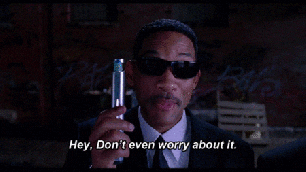

LINCOLN IN THE BARDO
by George Saunders
Random House
February 14, 2017
From Goodreads:
February 1862. The Civil War is less than one year old. The fighting has begun in earnest, and the nation has begun to realize it is in for a long, bloody struggle. Meanwhile, President Lincoln’s beloved eleven-year-old son, Willie, lies upstairs in the White House, gravely ill. In a matter of days, despite predictions of a recovery, Willie dies and is laid to rest in a Georgetown cemetery. “My poor boy, he was too good for this earth,” the president says at the time. “God has called him home.” Newspapers report that a grief-stricken Lincoln returned to the crypt several times alone to hold his boy’s body.
Before I get into any praise or criticisms, I think it’s only fair to say that I did this one as an audiobook. Sometimes that doesn’t make a lot of difference, and sometimes it’s a big, huge, GIGANTIC difference. As was the case with this one.
Lincoln in the Bardo had a FULL cast. Even if a character only had a single line, they brought in an actor to read that line. And a lot of really well-known actors, too. Nick Offerman, Lena Dunham, Ben Stiller, Julianne Moor, Susan Sarandon, Bill Vader, Megan Mullally, Rainn Wilson, Kat Dennings, Jeffery Tambor, Don Cheadle, and the list goes on and on. It’s a really big deal.
All that being said, this book started out as a tough listen.
There were many “chapters” that consisted of quotes from many other literary sources. And though each quote was read by a voice actor, the narrator had to read the source for each one. And most of the quotes were short. So you’d have a single sentence (maybe two), followed by the narrator reading the source. Sentence, source, sentence, source, rinse and repeat. I don’t think I need to tell you how that affected the book’s flow.
To be fair, there was a really interesting aspect to these chapters, and it lay in-between the quotes themselves. When getting into a chunk of them, there would be a clear theme. Some were about an event that all the quoted parties had attended, while others were as simple as someone’s appearance. The range that came out from these quotes left my unsure of anything. One person claimed a party to be lively and wonderful while another described it as abysmal and a waste of money. Even in regards to something like the colour of Lincoln’s eyes, there were quotes that placed just about every possible colour and hue around his irises. I would have thought there was a clear answer on details like that. History suggests otherwise.
The other fascinating part was our main characters.
Going into this book, I knew it was a historical fiction surrounding Abraham Lincoln around the time of the death of his son Willie. That was about it.
I thought our main characters were going to be members of the Lincoln family, our the servants closest to them, and maybe even old Honest Abe himself. However, our main characters are a bunch of dead people, existing in a community partially reminiscent to The Graveyard Book.
The back and forth between these characters is what makes up most of the book. President Lincoln is there for most of it, but he’s kind of in the background. He may be the subject, but not the content. And at first I was disappointed by that, but it really works. Each of these new characters that are somewhat thrust upon you at first (in a scene so chaotic that you wonder which way is up) but by the end they’re old friends and you hate to leave them.
This book checks a lot of boxes across readers’ interests. History, death, the supernatural, and satire, just to name a few. It’s not quite a book that I feel like EVERYONE should read, but most people. And while the audiobook is certainly an accomplishment in many ways, I think if I even read this book again (and I feel like I will) I think I’ll opt to read it in print.






